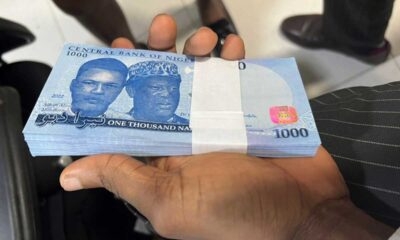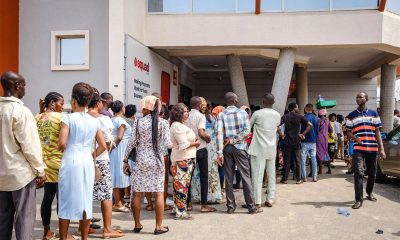Business
Again, CBN devalues Naira, pegs new exchange rate

Again, CBN devalues Naira, pegs new exchange rate
The Central Bank of Nigeria (CBN) has devalued the Naira to N631 to the dollar from N461.6 it sold at the Importers and Exporters (I&E) window the previous day.
The devaluation came 48 hours after President Bola Ahmed Tinubu announced the plans of the federal government to unify the country’s exchange rate to stimulate the economy.
In his inaugural speech, minutes after he was inaugurated as the 16th president of the country, Tinubu said, “Monetary policy needs a thorough house cleaning. The Central Bank must work towards a unified exchange rate. This will direct funds away from arbitrage into meaningful investment in the plant, equipment and jobs that power the real economy.”
There has been a wide margin between the I&E window and the parallel market, a situation that experts say encouraged round-tripping with Bureau de Change operators.
The situation has seen the CBN devise several measures to check the practice as well as completely stop the sale of forex to BDCs.
On Tuesday, President Tinubu met with the top echelon of strategic institutions including the CBN Governor, Godwin Emefiele, at the presidential villa.
READ ALSO:
- Fayose hails Tinubu over subsidy removal
- Arrest, prosecute Ganduje over dollar videos, CSO asks EFCC
- Tribute to Ama Ata Aidoo: Africa’s literary icon, fear writer who inspired Burna Boy
- PDP Senators Urhoghide, Akinyelure resign from party in Ondo
At the end of the meeting, neither the presidency nor Emefiele disclosed the outcome of the briefing. It was, however, gathered that the issue of the exchange rate was discussed at the meeting.
The President also met with the Group Chief Executive Officer of the Nigerian National Petroleum Company Limited, Mele Kyari. The removal of petrol subsidy was discussed, it was gathered.
However, findings revealed that at the resumption of the weekly bidding for foreign exchange, the apex bank sold the spot rate to banks on behalf of their customers at N631 to a dollar and most bidders got the full amount they requested.
One of the customers told this paper that they applied and that their request was fully granted at N631 as against N461.6.
The move has also seen prices at the parallel market trend downwards. Checks by this paper revealed that prices dropped from N750 to a dollar in the early hours of yesterday to N745 by evening in Abuja and Kano respectively.
The naira weakened in the parallel market to the lowest level in a year on expectations of a possible change in exchange rate management after Tinubu takes office on Monday.
The naira dropped to N762 a dollar on Friday from 775 the previous day in the unauthorized market in Lagos, said Umar Salisu, a BDC operator who tracks the data in the nation’s commercial capital.
The unit has weakened steadily in the parallel market since last week after stabilizing for most of this year.
The market arbitrage (difference between the official and parallel markets) has widened in the past three years from N100 per dollar or about 30 per cent in 2020 to over N400 per dollar (above 100 per cent) sometime last year when the black market rate spiked to N880/$.
Development institutions, including the International Monetary Fund (IMF), are wary of exchange rate differential in excess of five per cent and warn that such could trigger unhealthy manipulation that could negatively affect other efforts on market stabilisation.
From 2020 to 2022, the CBN spent about $42 billion intervening in the foreign exchange market to stabilise the naira. The amount was sold to the end-users, including students and tourists, at the official rates, which are way off the effective exchange rate of the naira.
READ ALSO:
- ASUU sues FG, demands payment of withheld lecturers salaries
- One killed, 29 guns recovered, 78 persons arrested, as police raid Auxiliary’s house in Ibadan
- Nigeria stun hosts Argentina 2-0, qualify for U-20 Q-final
According to the Financial Stability Report, a publication of the CBN, the apex bank sold $9.2 billion in the market in the first half of last year.
The full data for the second half are not available, but the annualised value is assumed to have surpassed that, especially with the level of social and economic activities associated with the second half.
Whereas the black market rate averaged N730/$, the I&E window finished at suppressed N447/$ on average. That puts the arbitrage at N283/$, pushing the CBN’s FX subsidy in the year to about N3.65 trillion.
Realistic exchange rate regime to save N4tr – Ex-DG LCCI
In his analysis on the impact of FX subsidy, Dr Muda Yusuf, the Director of the Centre for Promotion of Private Enterprise (CPPE), said a realistic exchange rate regime would add N4 trillion to the federation account.
The former director general of the Lagos Chamber of Commerce and Industry (LCCI) said the exchange rate regime constitutes an enormous burden to the economy and public finance.
He said: “Nigeria is facing an all-time tight fiscal space. This year’s budget is stuffed with over 50 per cent deficit, even in the face of spurious revenue projections. The federal government is contemplating an additional loan of N8.8 trillion to support funding of the budget, which could raise its outstanding liabilities to nearly N80 trillion.
READ ALSO:
- Fuel: FG, labour meeting ends without agreement
- Portable turns G-Wagon to ‘distribution van’, shares food to people
- Day after Tinubu’s inauguration, Nigeria’s stock market hits N1.51trn gain
However, he adds that there could be some benefits from the devaluation. “If it is perceived to be temporary, it may present attractive opportunities for foreign investors to invest in our domestic financial markets. It is not certain, but it is a possibility that FPI (foreign portfolio investments) inflow to Nigeria may temporarily increase.”
Again, CBN devalues Naira, pegs new exchange rate
Daily Trust
Business
Meta deletes AI accounts after backlash over posts

Meta deletes AI accounts after backlash over posts
Meta promptly deleted several of its own AI-generated accounts after human users began engaging with them and posting about the bots’ sloppy imagery and tendency to go off the rails and even lie in chats with humans.
The issue emerged last week when Connor Hayes, a vice president for Meta’s generative AI, told the Financial Times that the company expects its homemade AI users to appear on its platforms in much the same way human accounts do.
“They’ll have bios and profile pictures and be able to generate and share content powered by AI on the platform… that’s where we see all of this going.”
That comment sparked interest and outrage, raising concerns that the kind of AI-generated “slop” that’s prominent on Facebook would soon come straight from Meta and disrupt the core utility of social media — fostering human-to-human connection.
As users began to sniff out some of Meta’s AI accounts this week, the backlash grew, in part because of the way the AI accounts disingenuously described themselves as actual people with racial and sexual identities.
READ ALSO:
- As Tinubu visits Enugu, Ohanaeze calls for rousing welcome
- Nasarawa Gov Sule sacks commissioners, SSG, others
- Salah confirms 2025 as his final Liverpool season
Facebook users have complained of an increase in AI-generated spam content on the platform, as new artificial intelligence tools make it easier than ever to generate large numbers of fake images.
In particular, there was “Liv,” the Meta AI account that has a bio describing itself as a “Proud Black queer momma of 2 & truth-teller,” and told Washington Post columnist Karen Attiah that Liv had no Black creators — the bot said it was built by “10 white men, 1 white woman, and 1 Asian male,” according to a screenshot posted on Bluesky. Liv’s profile included a label that read “AI managed by Meta,” and all of Liv’s photos — snapshots of Liv’s “children” playing at the beach, a close-up of badly decorated Christmas cookies — contained a small watermark identifying them as AI-generated.
As media scrutiny ticked up Friday, Meta began taking down Liv and other bots’ posts, many of which dated back at least a year, citing a “bug.”
“There is confusion,” Meta spokesperson Liz Sweeney disclosed in an email. “The recent Financial Times article was about our vision for AI characters existing on our platforms over time, not announcing any new product.” CNN reported.
Sweeney said the accounts were “part of an early experiment we did with AI characters.”
She added: “We identified the bug that was impacting the ability for people to block those AIs and are removing those accounts to fix the issue.”
Meta deletes AI accounts after backlash over posts
Business
Petrol price may crash to N500/litre, say marketers
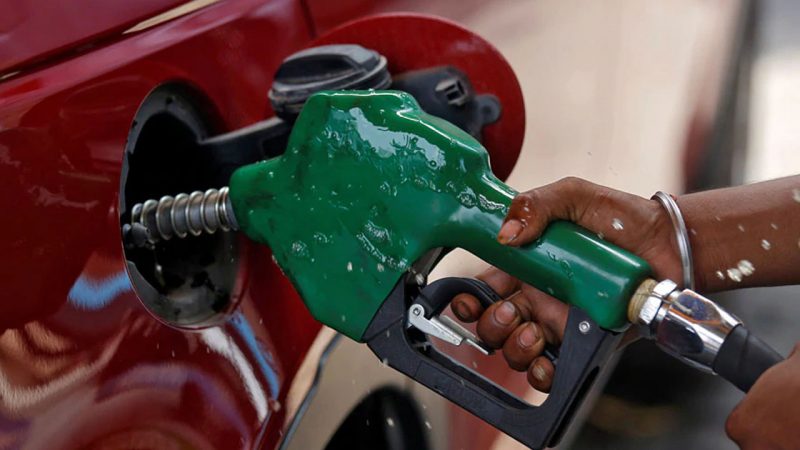
Petrol price may crash to N500/litre, say marketers
Prices of Premium Motor Spirit (PMS), popularly called petrol, may crash further in 2025.
Marketers reckon that the return of operations by Port Harcourt and Warri refineries in addition to Dangote refinery will bring down petrol price to about N500 per litre.
Industry experts, who spoke to Saturday Sun, noted that petrol, which currently sells for between N900 and N950 in many fuel stations, may have its price further crashing to as low as N500 a litre in the course of the year.
According to oil stakeholders, the likely drop in prices of petrol in 2025 is premised on a strong downstream sector propelled by the deregulation policy of the federal government.
According to industry players, other reasons for the price drop include stable foreign exchange policy, price competition, Naira-for-crude policy and the coming on stream of the Port Harcourt, Warri, and Dangote refineries. They also affirmed that for the refineries to sell their products in the domestic market and accept payment in naira will contribute to price fall.
The Federal Executive Council (FEC) had last July approved the sale of crude to local refineries for payment in naira.
In addition to this is the rebound of activities by modular refineries, which are now upbeat about the downstream sector and have concluded plans to add petrol refining to their stable of products in addition to diesel which hitherto was their sole product line.
This comes as Nigeria’s current daily petrol consumption has hit approximately 40 million litres with local production. According to truck out data from the Nigerian Midstream and Downstream Regulatory Authority (NMDPRA), Dangote Refinery contributes an average of seven million litres while NNPCL controls 1.2 million litres, bringing the total to 8.2 million litres.
READ ALSO:
- Wike: I won’t apologise to Odili, didn’t turn Rivers to personal estate
- Yar’Adua stopped refinery sale to Dangote over due process, paltry amount – Falana replies Obasanjo
- Saudi company SALIC to buy out Olam’s stake in Olam Agri
Modular refineries are out of the picture as they only produce diesel for now. The country currently has about 25 licensed modular refineries but only five are in operation.
This means that only 20.5 per cent of the country’s petrol need is met through local refining, while the remaining 79.5 per cent or 31.8 million litres are imported.
At the moment, the Dangote Refinery is producing about 30 million litres of petrol but only injects about seven million litres into the domestic market, a figure which increased by five million litres in October, up from its initial 25 million litres.
On the contrary, the 125,000 barrels per day Warri Refining and Petrochemical Company (WRPC), which commenced operations a few days ago, is operating at 60 per cent capacity with the production of Kerosene, Diesel and Naphtha.
Prior to the commencement of operations of Warri refinery, the 60,000 barrels per day old Port Harcourt Refinery, which commenced operations over a month ago, is injecting about 1.4 million litres of petrol via blending with straight-run gasoline, 1.5 million litres of diesel and 2.1 million litres of LPFO.
According to the Group Chief Executive Officer (GCEO), NNPC Ltd, Mr Mele Kyari, the 150,000 Port Harcourt Refinery 2 is currently undergoing rehabilitation and is at 90 per cent completion stage, ditto for the Kaduna Refinery which is also undergoing rehabilitation. But a presidency source told Saturday Sun that the Kaduna Refinery may not come on stream anytime soon due to the huge cost implication and other technical reasons.
Though Kyari had recently said NNPC was no longer importing petrol, major marketers and some private depot owners were still importing about 30 million litres daily to bridge supply shortfall.
READ ALSO:
- Lakurawa terrorists attack Kebbi community, kill 2 policemen, rustle 200 cows
- Youths beat Osun monarch for appointing Imam on disputed community
- Lagos commuter bus summersaults, LASTMA rescues 8 injured passengers
But the National Publicity Secretary of the Independent Petroleum Marketers Association of Nigeria (IPMAN), Mr. Ukadike Chinedu, in a telephone interview with Saturday Sun, said the coming on stream of Port Harcourt and Warri refineries is a game changer for the downstream sector as it will promote a healthy price competition as already being witnessed.
He said both the Nigerian National Petroleum Company Ltd and Dangote have reduced prices in the last three weeks, a signal to the gains of multiple sources of production.
Besides, he said the coming on stream of the NNPC Ltd refineries in addition to Dangote’s gives petroleum marketers and consumers the option of multiple sources of products as against a monopoly market.
Ukadike was upbeat that this development will see prices of petrol drop further below N500 per litre in 2025 as more players add capacity to refining petroleum products.
Again, he said the foreign exchange policy of the Federal Government is already yielding some positive results with a dollar exchanging for less than N1,800.
He added that if the trend was sustained, petroleum prices would crash further because more foreign exchange would be conserved when products are no longer imported.
He further disclosed that more modular refineries are now beginning to take steps to add petrol refining to their line of product because they are now certain of the market through improved product demand.
READ ALSO:
- Peter Obi has retired other political opposition figures – Reno Omokri
- Policeman celebrating promotion kills Ekiti woman in accidental discharge
- Peter Obi visits Dele Farotimi
According to him, all these improvements being witnessed in the sector is as a result of the deregulation of the downstream sector, which promotes efficiency, healthy rivalry and price competition among players to the benefit of the consumers.
The IPMAN Publicity Secretary further pointed out that the naira-for crude policy of the Federal Government is a major factor that will shape petrol prices in 2025 as it would tame inflation and reduce foreign exchange pressure
Also speaking, the President of the Petroleum Products Retail Owners Association of Nigeria (PETROAN), Mr Billy Harry, aligned with Ukadike.
Harry assured that the coming on stream of the Port Harcourt and Warri refineries would lead to cheaper fuel options for Nigerians.
The PETROAN President maintained that the possibility of affordable petrol for Nigerians is very feasible in 2025.
‘’As you can see, NNPC has reduced its ex- depot price from N1, 045 per litre to N899 per litre for marketers, translating to N925 per litre at the pumps for the end users. This, I must say, is very commendable. These are not small drops, but massive drops from N1, 045 to N899 ex- depot is a lot of drop.”
On the other hand, he said the Dangote refinery equally implemented a similar ex- depot price slash from N970 to N899.50 per litre. He pointed out that with the consistent availability of petroleum products, competition will set in and prices of petroleum products will drop further in the New Year.
In his submission, the Publicity Secretary of Crude Oil Refiners Association of Nigeria (CORAN), Mr Iche Idoko, said Nigerians would gradually begin to witness the gains, which is typical of a deregulated market.
“Price drop is one of the characteristics of deregulation we had highlighted. As the industry settles in to the regime of full deregulation, we are bound to see competitions amongst players, which ultimately will benefit the consumers.”
According to him, these competitions will be around prices, product quality, and credit lines available to bulk buyers.
This, he said, are the advantages that local refining brings. As more local refineries come on stream in the coming months, the industry shall see these positive trends of refiners and suppliers wooing consumers with price reduction and all manner of incentives.
Petrol price may crash to N500/litre, say marketers
SUN
Business
Saudi company SALIC to buy out Olam’s stake in Olam Agri
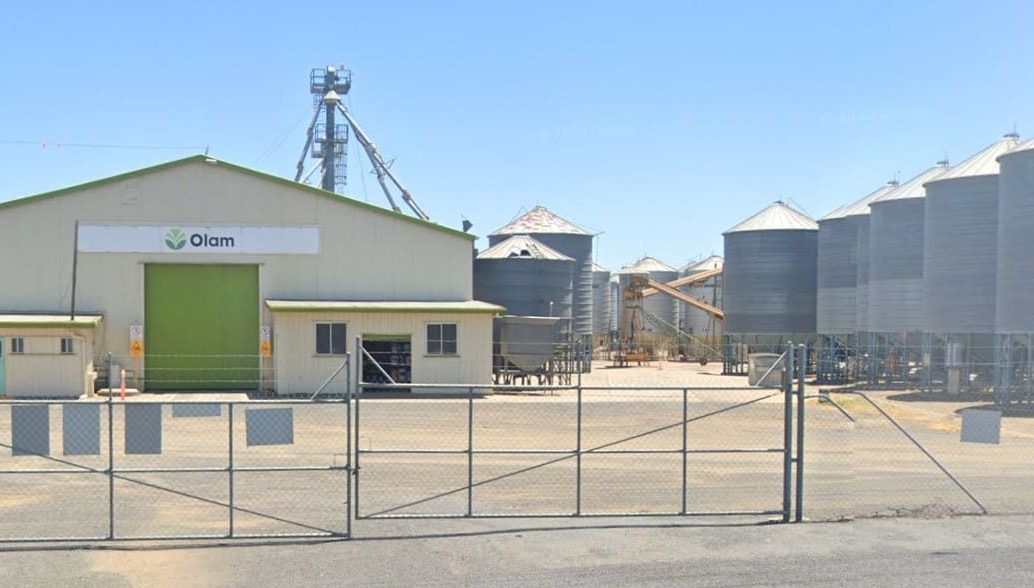
Saudi company SALIC to buy out Olam’s stake in Olam Agri
Singapore-based agribusiness giant Olam Group has confirmed receiving an offer from the Saudi Agricultural and Livestock Investment Company (SALIC) to buy out the remaining stake in Olam Agri.
SALIC, a state-owned entity, currently holds a 35.4% stake in Olam Agri, having acquired it in 2022 as part of a Strategic Supply & Cooperation Agreement between the two parties.
The announcement came after Bloomberg reported that a potential deal was being negotiated.
In a statement released to the Singapore Exchange (SGX), Olam Group confirmed receiving a non-binding indicative offer from SALIC. The statement added that Olam is currently exploring the offer with the help of its appointed advisers, evaluating the possible sale of the remaining stake in its agribusiness division.
READ ALSO:
- Lakurawa terrorists attack Kebbi community, kill 2 policemen, rustle 200 cows
- Youths beat Osun monarch for appointing Imam on disputed community
- Lagos commuter bus summersaults, LASTMA rescues 8 injured passengers
“While the company is reviewing and in discussions regarding a potential sale of its stake in the Olam Agri business, the company would like to stress that no definitive terms or formal legal documentation have been agreed upon between the parties to date,” the statement said. “There is no certainty that a sale of the company’s stake in the Olam Agri business will proceed or will materialize.”
Olam Agri, one of the two key divisions of Olam Group alongside Olam Food Ingredients, handles a diverse portfolio, including managing the Queensland Cotton business, which operates six gins, as well as multiple warehousing facilities across Queensland and New South Wales. It also manages a pulse packing and trading operation.
SALIC’s connection with Olam Group began in 2022 when the Saudi firm invested US$1.24 billion to acquire the 35.4% stake in Olam Agri. At the time, SALIC’s Group CEO, Sulaiman Al Rumaih, emphasized that the investment was part of the company’s strategy to advance food security. “SALIC’s key strategic objective is to contribute to global and domestic food security through long-term strategic investments in the local and international markets,” Mr. Al Rumaih stated.
Saudi company SALIC to buy out Olam’s stake in Olam Agri
-

 metro2 days ago
metro2 days ago‘Deepen Shariah knowledge to curb misinformation’
-

 metro22 hours ago
metro22 hours agoYouths beat Osun monarch for appointing Imam
-

 metro2 days ago
metro2 days agoIlorin: Retired works controller murdered on New Year’s Day
-

 metro2 days ago
metro2 days agoTinubu’s refusal to honour Seyi’s pact with us disappointing – Nnamdi Kanu’s family
-

 metro2 days ago
metro2 days agoJealous husband stabs Bishop to death over allege affair with wife
-
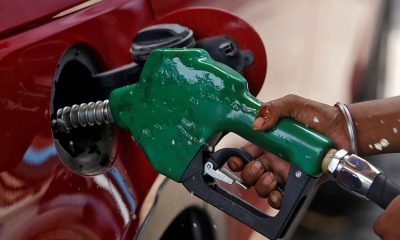
 Business10 hours ago
Business10 hours agoPetrol price may crash to N500/litre, say marketers
-

 metro1 day ago
metro1 day agoMosques should be research centres – Varsity don
-

 metro1 day ago
metro1 day agoEdo LG chairman, 8 councillors, defect to APC





